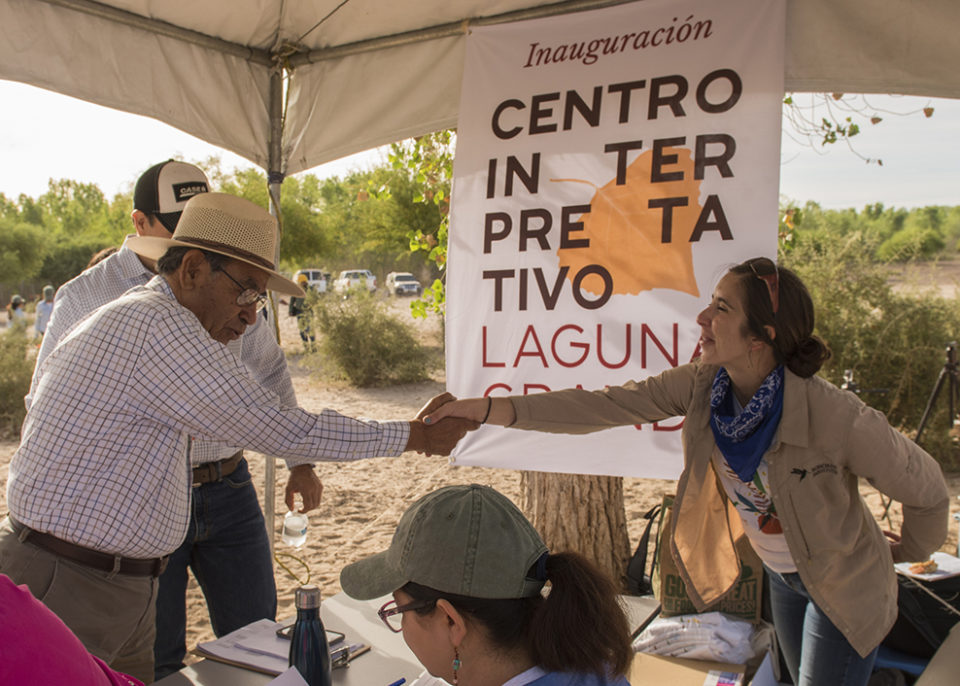Being a Binational Organization
It’s not all perfect.
The challenge of working together while not being physically in the same city or country leads to higher chances of misunderstandings. Relying on technology to bridge distance often works, but some things are just a bit less fun or meaningful over Skype because face-to-face communication helps us know what someone is really thinking.
Speaking different languages, with English being the more “official” one seems to reinforce perceptions that the US is the center of leadership, even though many in both countries want to increase their second-language skills. It’s also important to us to hire and appoint more bilingual staff and board members. In both the US and Mexico staff have moved to the border region from far away, meaning it takes time to learn about complex social, environmental, and economic issues on both national and local levels, and because of this everyone is working through his or her background to understand our work and our organization.
Systemic inequalities within both American and Mexican societies and government, and very different economic situations present difficult realities for an organization of our size to address.
My colleagues describe these issues with honesty and courage:
“Things are very different between the two countries and that is a fact. We have always been under the shadow of underdevelopment, I mean, I know there’s a lack of equality on both sides (I think we even have more homeless people in the US), but here in Mexico the quality of life you are able to achieve, as say a farmer, doing the exact same work as someone in the US simply does not compare.”
–Angela Melendez, GIS coordinator (Mexicali)
“Culture between work groups or teams within any organization varies, and working with colleagues in Mexico takes this to another level. While we’re forced to confront expectations or norms of management, communication, leadership, and personal autonomy, we’re reminded that people can organize and collaborate in many ways and still be successful.”
–Jeremy Stapleton, director of climate resilience (Phoenix)
“We may be the first ones to speak up, but that doesn’t mean we have the answers to the issues being discussed.”
–John Shepard, senior director of programs (Tucson)

“My working dynamics at Sonoran are interesting because I work with my boss mostly online. It has been good because it has given me a lot of autonomy and freedom to organize my work, but it has also been a challenge because sometimes personal interaction is necessary, like to celebrate achievements, solve problems, and to get feedback.”
–Sandra Ortiz, ecological restoration coordinator (Mexicali)
“I really enjoy learning about the different regions in Mexico and how diverse it is culturally and geographically.”
–Karen Schlatter, associate director, Water & Ecosystem Restoration (USA)
“I wish we could collaborate more. Because of the distance we’re not able to see how each workplace is different, and if we could visit more often I think we would better understand each others’ experiences.”
–Rabí Hernandez, environmental communication and social participation coordinator (Mexicali)
This is part 3 of 5 in a series about being a binational organization
Read the other posts:
- A border is not a barrier (Introduction)
- Challenges that lead to growth
- Our common connection to nature
- Pride, gratitude and generosity
By: Corinne Matesich, Marketing Communications Manager
